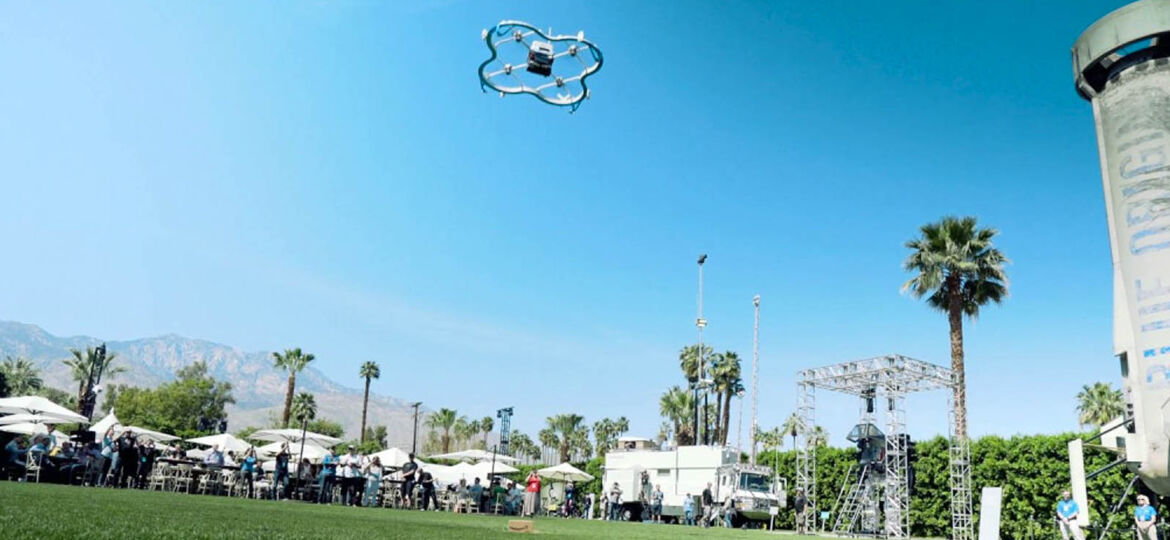
WHY THIS MATTERS IN BRIEF
- Time to delivery is the new retail battlefield and Amazon is getting closer to realising its 30 minute goal
Amazon, who last December became the first company to successfully complete the UK’s first drone delivery, has been testing its Prime Air drone delivery drones for years now, but this week it finally made the leap that everyone’s been waiting for and demonstrated the new service for real, in the wild, in the US. And Jeremy Clarkson was nowhere in sight…
In a first for Amazon, who unfortunately for them got beaten to the punch of being the first company to perform a drone delivery in the US by 7-Eleven who used a drone to deliver donuts to someone’s back yard last year, a Prime Air drone dropped off some bottles of sunscreen for the attendees at the company’s invite only MARS (Machine learning, Automation, robotics and Space exploration) conference in California on Monday. And although the order was prearranged, the delivery itself was fully autonomous.
Amazon says it’s the first time its drones have flown for the public in America, with all other US flights taking place on private property.
“This flight brings Amazon one step closer to making 30 minute package delivery by drone a reality,” said Gur Kimchi, the Vice President of Amazon Prime Air, who then added, “this couldn’t have been done without the assistance of the FAA.”
Kimchi raises a good point – while the technology, arguably, has been ready for some time now without the regulators approval this new mode of transport would simply stay grounded, and if Amazon ever stands a chance of scaling this up then they need the FAA’s blessing. At the moment autonomous drone delivery is still prohibited in the US, and Amazon has complained that the regulatory system is too slow to adapt which is one of the main reasons why they’ve been trialling their autonomous drone delivery systems first in the UK where the Civil Aviation Authority (CAA) is much more accommodating. However, as drone deliveries, inevitably, become more common place there’s another issue waiting on the horizon to be solved, and that’s one that Singapore and the US Defense Advanced Research Projects Agency (DARPA) are already looking into, and that’s the issue of drone air traffic control.
Noone ever said that this was going to be easy!

















[…] Source link […]